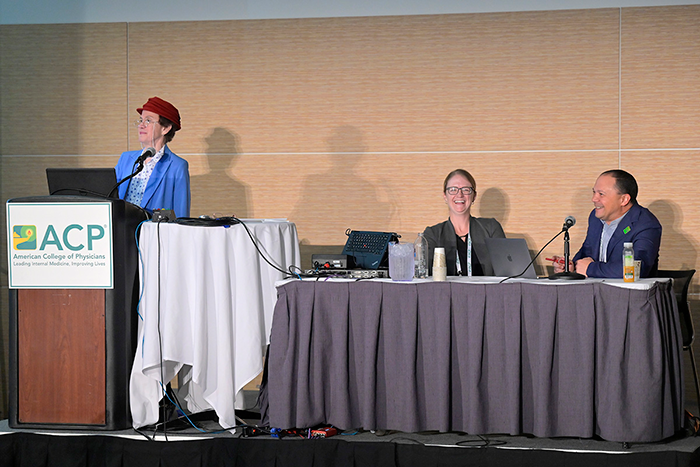How would clinical decision making differ for a patient who refuses a blood transfusion based on religious beliefs and one who does so based on medical misinformation?
That was the question posted to attendees at “Ethical Case Challenges: Health Care Disinformation and Misinformation,” a panel discussion moderated by Jan K Carney, MD, MPH, MACP, and featuring panelista Amy K Holbrook, MD, FACP, and Erik Wallace, MD, MACP.
The three presenters acted out the two patient scenarios on April 19, 2024 at the American College of Physicians Annual Meeting, with Dr. Wallace posing as a hospitalist and Dr. Holbrook as the designated surrogate and decision maker for her mother, played by Dr. Carney. Dr. Carney’s character needed a transfusion and had mild cognitive impairment.
Prior to the role play, Dr. Carney explained the difference between misinformation and disinformation, defining the latter as “false or misleading statements an author or speaker knows to be wrong and intends to cause harm.” Misinformation “is spread unwittingly” in contract to disinformation, which is “spread intentionally to confuse, deceive, or otherwise manipulate.”



